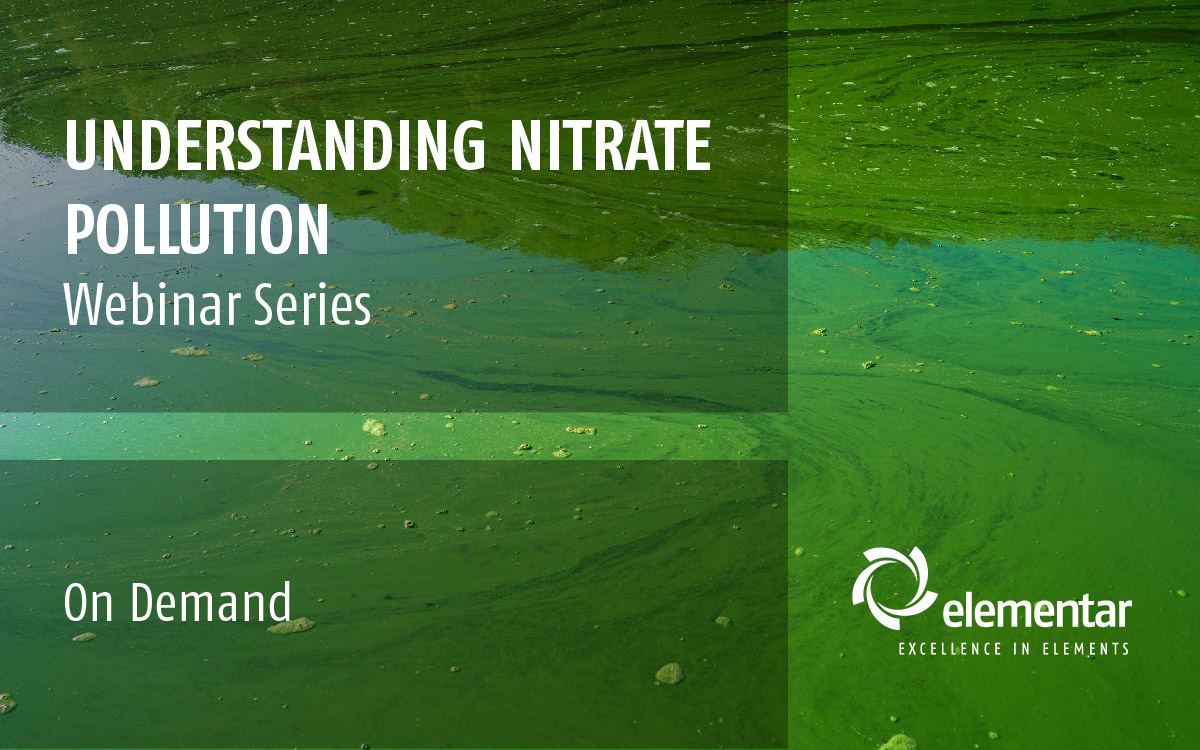
Hear from leading experts about their research in nitrate pollution in water.
Nitrate is a reactive form of nitrogen that is essential for plant growth, but excess nitrate from fertilizers, manure, sewage and industrial processes can leach into groundwater and run off into surface water, which can lead to devastating, cascading effects throughout the ecosphere. As concerns about water quality and ecosystem health escalate, understanding and mitigating nitrate pollution is critical to protecting and improving our natural environment.
To help better understand nitrate pollution, Elementar is proud to present a series of webinars hosted by academic experts describing how we got here, the impacts of nitrate pollution and how we can develop solutions to reduce nitrate in the environment. Critical to developing these solutions is stable isotope analysis, an analytical technique which is uniquely able to inform scientists about the possible sources of pollution.
Sessions
The story of a disturbed nitrogen cycle
Dr Ben Surridge, Lancaster University
Over the past century, humankind has produced incredible amounts of reactive nitrogen as we have industrialized and sought to feed our growing global population. This has led to the natural balance of the global nitrogen cycle being pushed far beyond its steady state and now reactive nitrogen is having a devastating impact at both global and local scales.
Dr Ben Surridge will guide us through the scale of the problems humankind faces and will demonstrate how stable isotope analysis is uniquely able to deliver the insight needed to understand nitrate pollution.
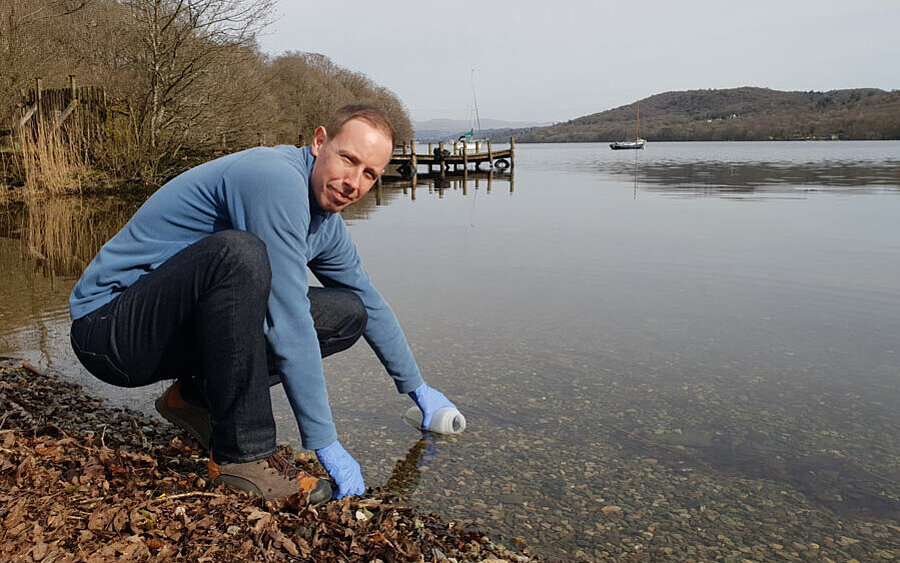
Introducing the EnvirovisION for isotopic nitrate analysis
Dr Calum Preece and Dr Andi Smith
EnvirovisION is a stable isotope platform from Elementar, which is dedicated to the analysis of dissolved nitrate with specific enhancements for the new titanium chloride reduction method. Following conversion of the dissolved nitrate to nitrous oxide (N2O), the system preconcentrates the sample gas to give exceptional levels of detection of very low concentration samples. Coupled with several unique software features, EnvirovisION offers high precision, high sensitivity analysis with high throughput demonstrating that EnvirovisION is ideal for moving nitrate analysis into a regular sampling regime.
Dr Calum Preece will introduce several of the critical benefits of EnvirovisION for labs looking to offer isotopic nitrate analysis services and Dr Andi Smith will present some interesting case-studies from the British Geological Survey using the EnvirovisION system.
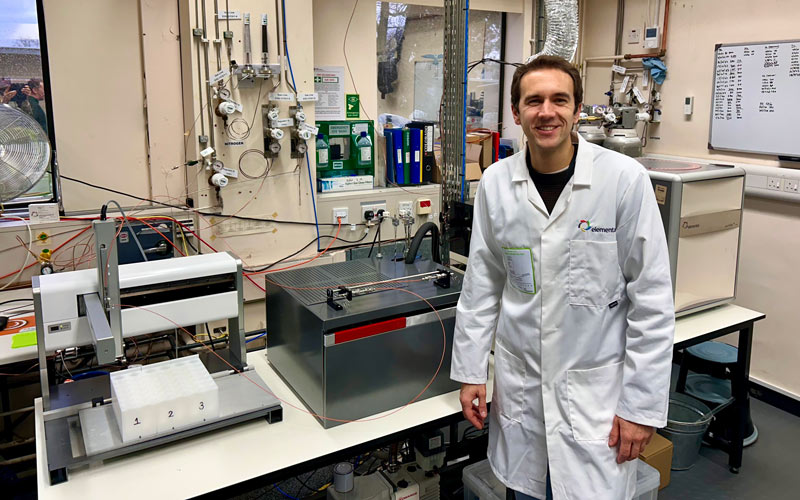
The Titanium Method: One-step reduction of aqueous NO3 to N2O for stable isotope analysis
Dr Len Wassenaar, WasserCluster Lunz
As one of the most abundant forms of reactive nitrogen, dissolved nitrate is ubiquitous in the environment and may derive from natural or anthropogenic sources. Stable isotope analysis is able to distinguish between these sources but methods to prepare these dissolved nitrate samples for analysis have traditionally been slow and laborious, making routine testing prohibitively expensive. But now, a new method developed by Dr Len Wassenaar and colleagues may become a game-changer since it is significantly quicker and easier than other techniques.
Dr Len Wassenaar will explain the concept behind the method and show how the method makes nitrate isotope analysis more accessible to laboratories across the world.
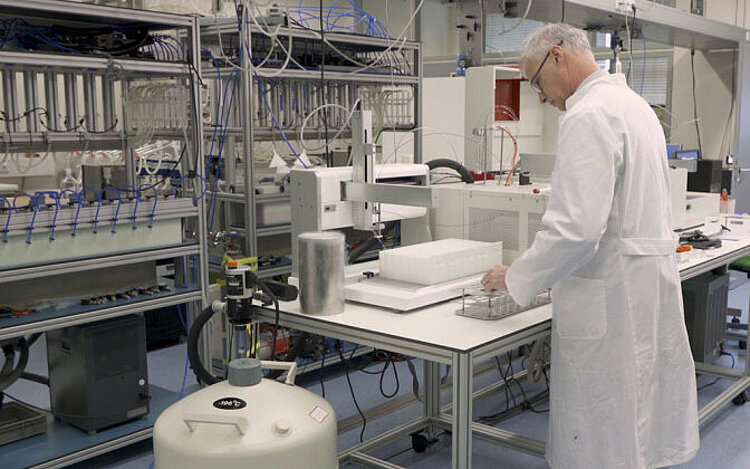
Demonstration of the EnvirovisION stable isotope platform
Dr Calum Preece, Elementar UK
Dr Calum Preece and Mike Seed will present a demonstration of the Elementar EnvirovisION system from the Elementar Applications Laboratory.
The demonstration will give an overview of the system and guide you through how the system works as well as introducing you to the key features in lyticOS Software Suite, which are designed to improve throughput whilst delivering exceptional performance.
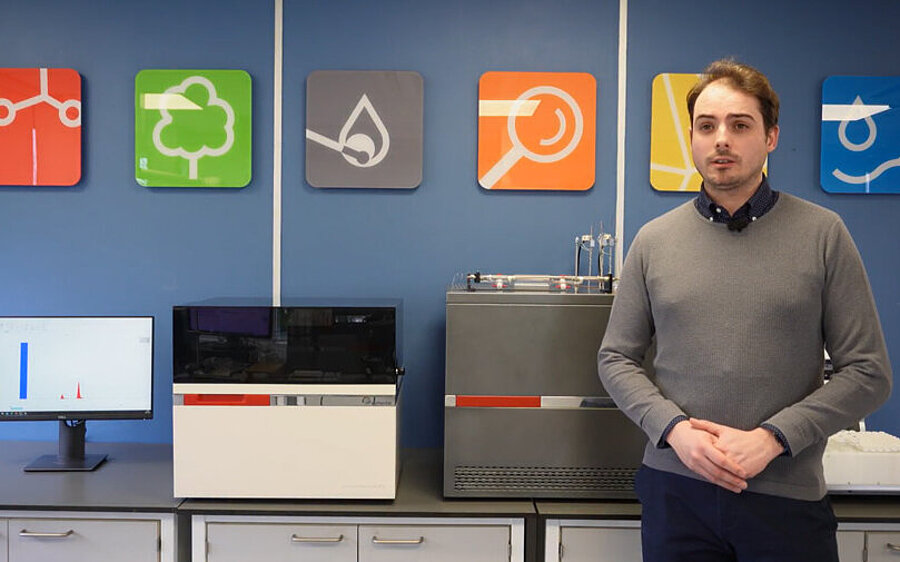
The Speakers
Dr Ben Surridge - Biogeochemist, Lancaster Environment Centre, UK
Ben is a biogeochemist who is interested in the effects of human activity on the fluxes of phosphorous, nitrogen and carbon throughout the ecosphere. His research also examines how future human demand for resources can be met, whilst at the same time minimizing the environmental damage that follows inefficient resource use.
Dr Len Wassenaar - Research Scientist, WasserCluster Lunz, Austria
Len is a Senior Researcher at WasserCluster Lunz Biological Station who specializes in Stable Isotope Ecology and Hydrology. Previously, he served as the Laboratory and Section Head for Isotope Hydrology at IAEA, Vienna, from 2012 to 2021, and was the head of the Isotope Hydrology and Ecology Laboratory at Environment Canada, Saskatoon, from 1991 to 2012. Len's research focuses on applying stable isotopes to study freshwater and terrestrial ecosystems.
Dr Andi Smith - Geochemist, British Geological Survey, UK
Andi is a geochemist working at the NERC environmental isotope facility at the British Geological Survey (BGS). His major research focuses are: the use of phosphate and nitrate isotopes to understand nutrient cycling within environmental systems, palaeoclimate reconstruction using speleothem deposits and using methane isotopes to trace source in atmospheric and groundwater samples. In his role at BGS he develops novel isotope instrumentation whilst supporting UK academics in a range of isotope projects.
Calum Preece - Environment Market Manager, Elementar
Calum is the Environment Market Manager at Elementar and has an extensive background in marine science and biogeochemistry. He possesses notable expertise in global nutrient cycles, such as the nitrogen cycle and carbon cycle, and his academic research career before joining Elementar UK focused on oceanic nutrient cycling and the use of stable isotopes to investigate future scenarios and climate change.
Find out more and sign up at GoTo Webinar.